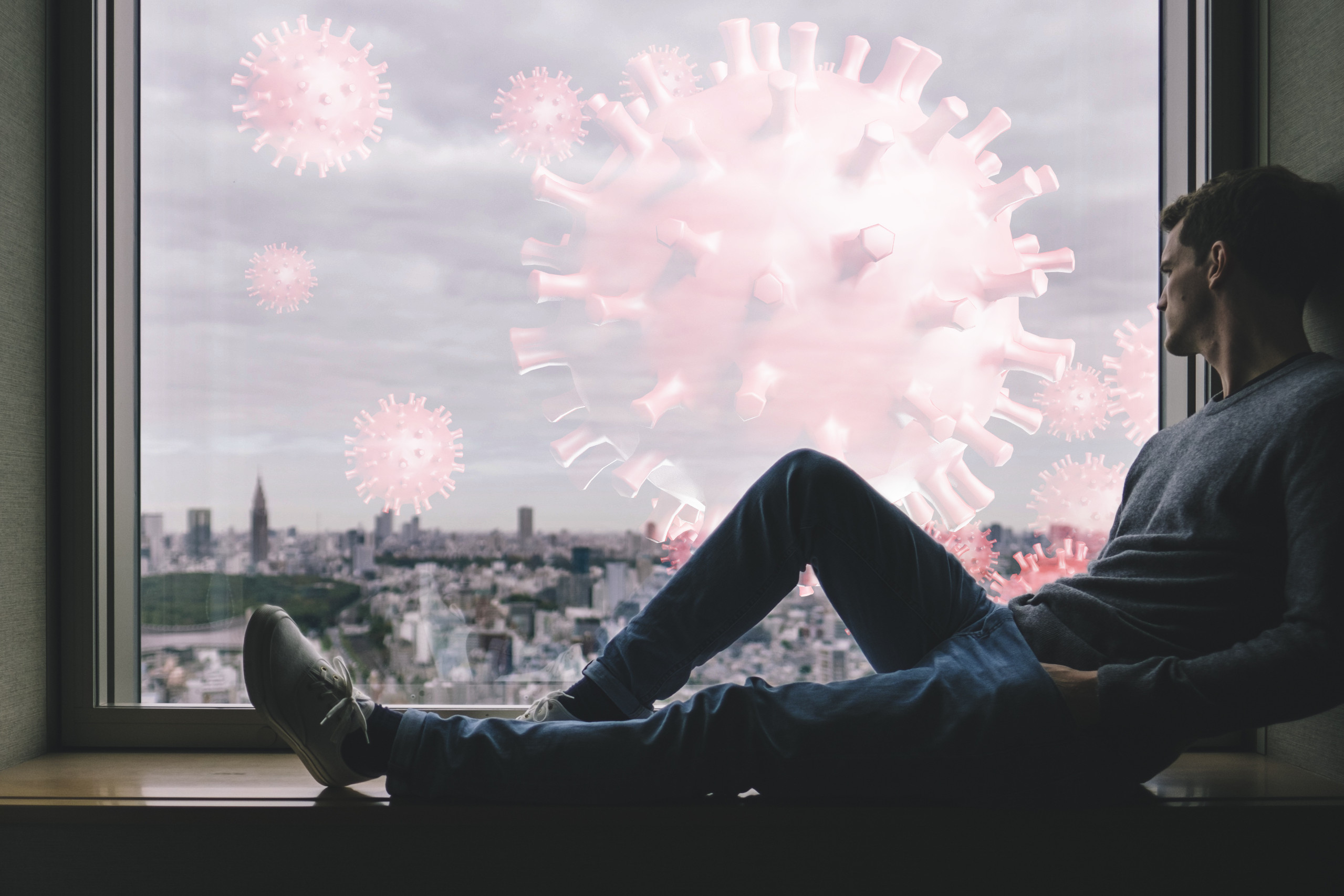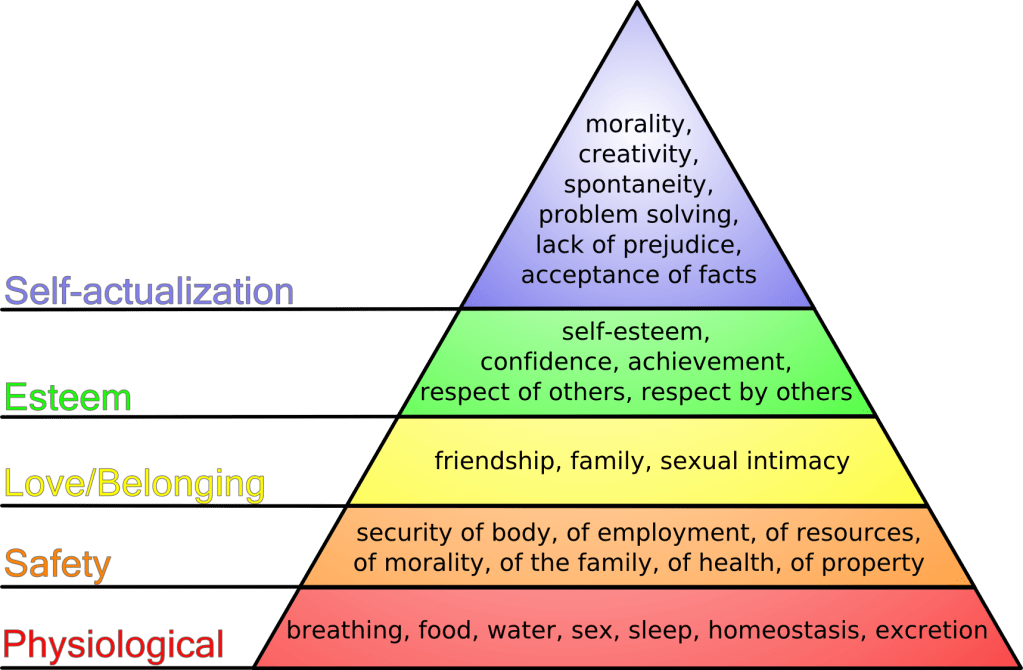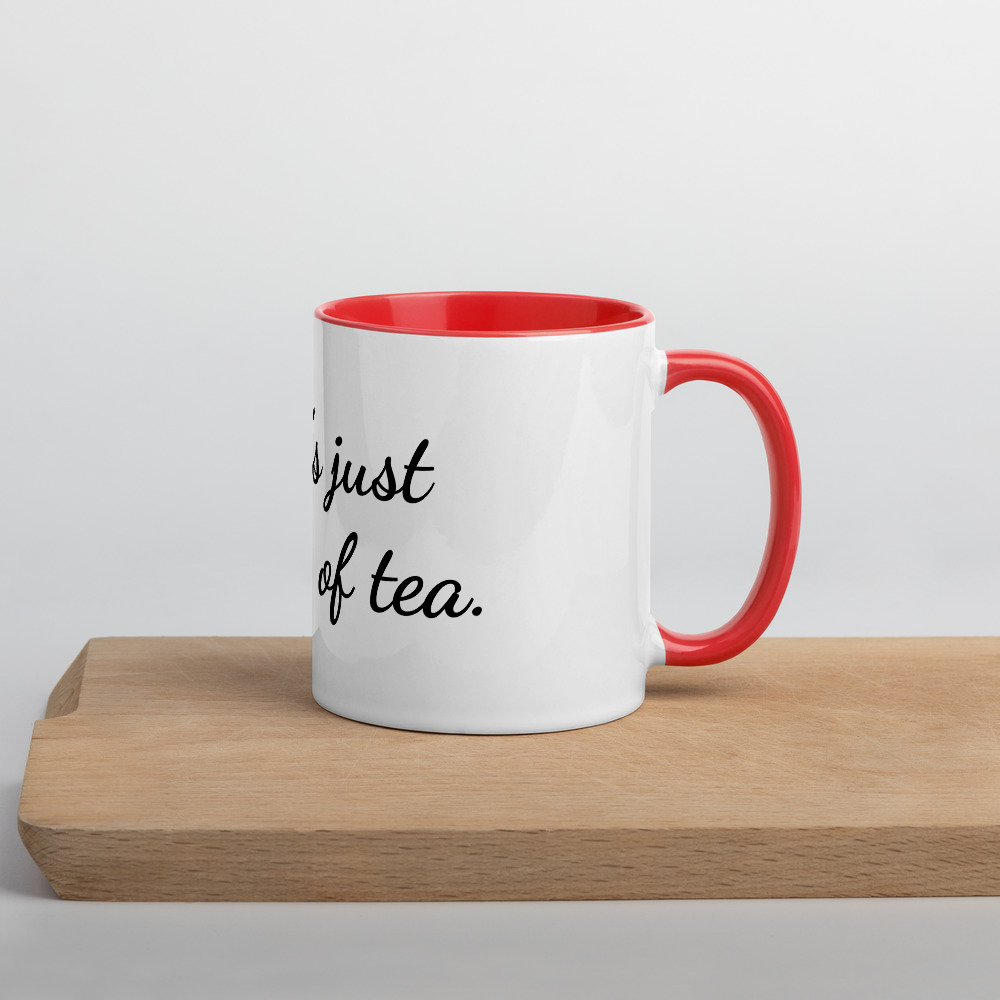|
Blogcast - listen to the audio version
|

Contents:
- A new way of life
- My selfless reasons
- Keep your life structured
- Secret tools
- Plan ahead
- First-World-Problems
- Shameless plug
Getting used to a new way of life
For most people this situation is new. Adjusting and adapting to a new situation isn’t easy. Possible implications of the Coronavirus pandemic and its entailing regulations, like quarantining, may include:
For some people, like me, at least one of these realities was already ‘normal’ for a while. So I want to share my experience, knowledge and conclusions in order to help others. If only one person reading this can get value from it, contributing to making their life better, I am happy.
Opportunities
I always try to see both sides of the coin. In every bad situation, we can find something positive.
The Corona pandemic is a chance for us to:
- slow down. realize this is a time of reset
- take a step back, change perspective
- be grateful for what we have, don’t be sad about what we don’t have
- rethink lifestyle choices
- live a happy life with “financial okayness” instead of an unhappy life with financial success or abundance
- get rid of bad vices
- implement healthy habits into a daily routine / replace bad vices with healthy alternatives
There are many aspects of this situation to explore in future articles. Like financial minimalism and its inherent resulting economic and ecological benefits. In this article, I’ll discuss the health implications of the COVID-19 stay-at-home regulations, especially on mental health.
My destiny, my calling, my purpose?
I planned and worked on other ways to improve people’s lives broadly speaking. To put my accumulated knowledge from personal experiences and gathering information to good use.
Due to current circumstances, I’m accelerating the launch of my blog now, in this time of need.
Opportunistically, but also for altruistic reasons, because I think I can provide value to some people. We don’t know, how long this state of quarantine and distancing/isolation will last. But even beyond that, you can find value in my proposed ‘solutions’. Possibly creating a new “normal”, even better than before.
A different kind of “prepping”
We all know people who like to be physically prepared for anything, or maybe you are such a wise, long-sighted person yourself.
From Wikipedia:
“Survivalism is a movement of individuals or groups (called survivalists or preppers) who actively prepare for emergencies, including possible disruptions in social or political order, on scales from local to international. Survivalism also encompasses preparation for personal emergencies, such as job loss or being stranded in the wild or under adverse weather conditions. The emphasis is on self-reliance, stockpiling supplies, and gaining survival knowledge and skills. Survivalists often acquire emergency medical and self-defense training, stockpile food and water, prepare to become self-sufficient, and build structures such as survival retreats or underground shelters that may help them survive a catastrophe.”
I’m talking about mental prepping, though. My choice to “self-isolate” to varying degrees over the past several years now (for separate, non-corona-related, personal reasons) helped me to prepare for this current situation, as a by-product. I was already used to this, so I almost didn’t need to adjust at all. It was easy and came naturally. None of the regulations and guidelines bothered me. Staying away/keeping a distance from people? Yes, please! Wearing a mask when out in public? No big deal. What CAN become a problem though – losing your daily routine and letting yourself go. At least for me, it was.
Choose your path
Since I’ve experienced/tested both paths, I can advise you in advance which one to take (spoiler alert, it’s path B). So I can prevent you from making the same mistakes I made.
A: self-neglect, unhealthy habits
B: structure, healthy habits
Keep your life structured
You don’t need me to lay out a step-by-step guide on what to do. I’ll just introduce some concepts on which your creative mind can expand upon. Whatever you decide to do – don’t stop. At least not for too long. The longer you stay still, the harder it is to get moving again. Of course, a short pause or rest period doesn’t hurt and can be healthy. But don’t get sloppy. Once you lose a daily structure or routine, everything gets harder.
As long as you are in motion and have a structured life, it’s easy. Get up every day, eat breakfast (or not), go to work. Come home, go jogging, or hit the gym. Cook and eat dinner. Perfect. You feel productive, a sense of accomplishment. Great. But that’s easy. I don’t want to take anything away from anyone who manages to do all these things and more. I just want to give you perspective. Everybody can fall into that trap and before you realize it, it’s too late. I know this from experiencing both sides.
The chains of habit are too weak to be felt until they are too strong to be broken.
Samuel Johnson
Literal and Metaphorical Inertia
I like to compare this by analogy to Newton’s first law of motion. A body at rest tends to stay at rest, and a body in motion tends to stay in motion, unless acted on by a net external force. The status quo is a powerful force in human behavior, directly analogous to the inertia described by Newton’s first law of motion: force is necessary for a change in motion to occur. Of course, this is much more complex than physics, when applied to human psychology. But it helps me grasp the basic concept and keeping it in mind whenever I catch myself trending towards a state of inertia/inactivity.
(more about Status quo bias)
I’m not talking about relaxing on your couch one night, after a day’s work. I mean behavioral patterns that we repeat until they become habits. Over weeks, months or years, these habits have become the new status quo. To break out of it, huge effort and tremendous willpower are required.
Let’s take that couch example and entertain this scenario: Let’s say you sit on your couch watching TV every day after work, cooking and cleaning the dishes. One day, you don’t feel like doing the dishes. “I’ll do it tomorrow. Relax first.”, sitting down on the couch. What seems like a tiny thing can develop into a huge problem.
Gradually over time, you neglect more and more of your other tasks. Not necessarily because you don’t want to do them, but because you’re used to not doing them. Your new status quo has become doing nothing but sitting on your couch, watching TV. Now it becomes harder and harder to revert back to your old habits. Mountains of dishes pile up in the kitchen. Dirty clothes lie all over the floor. On top of breaking the habit, all the previously undone work would require additional force. This example can be seen both literally and figuratively.
See the positive in every situation
During the Corona pandemic, some of us got dealt a bad hand. Important routine tasks, jobs or whole life purposes got taken away through no fault of our own. The symptoms of wealth inequality are shown to us at an accelerated pace. I won’t go into this further since there would be enough material for ten more articles. In the context of avoiding inertia, the difference to my couch example is that it was forced upon us. Also, this was no gradual process but happened overnight. The upside, in this case, is THAT it happened so quickly, that there was no time to build bad habits and behavioral patterns in the first place. So we can react immediately to prevent consolidating an inadvertent status quo that would be hard to change back from.
Moral of the story:
If you have the choice, stay in motion. It requires less effort/force than to get moving again.
Okay that’s cool and all, but what can I actually DO?

3 Secret Tools that help you prevent inertia and combat anxiety & depression:
- Pen
- Calendar
- Alarm clock
Not so secret, you say? Ok, the title was a little dramatic. But many people don’t actually use these tools and may need to rediscover them. I myself failed to use them with the eventual result of living without a thought for tomorrow. No goals, neither short term nor long term. No life purpose. Mental and physical decay. This dire outlook should act as an exemplary deterrent.
Plan your week. Map out a basic daily structure.
Simplicity is the ultimate sophistication.
Leonardo da Vinci
It doesn’t have to be anything sophisticated. It can be – if you feel you can do it and you already know how to implement it. But I recommend starting simple.
If you can read this, I am assuming your basic human needs are somewhat covered.

Prioritize basic human needs and progress to things further up the hierarchy. If you manage to do the basic things easily, you can expand with more advanced stuff. You could use different colors to visually separate different priority groups, for example. Here are some ideas to fill your week and day plan with:
– Sleep: When to get up.
– Nutrition: When to cook & eat meals.
– Grocery shopping.
– Physical exercise.
– Call family & friends (Distant Socialising while Social Distancing. I like the phrase “Physical Distancing” better anyway, just like Neil deGrasse Tyson said)
– Start a project (build, create, learn a new skill)
This is just a rough guideline. Add, remove, prioritize to fit your individual needs and goals.
The magnitude of risk associated with social isolation is comparable with that of cigarette smoking and other major biomedical and psychosocial risk factors. However, our understanding of how and why social isolation is risky for health — or conversely — how and why social ties and relationships are protective of health, still remains quite limited.
James S. House, Psychosomatic Medicine, 2001, Issue 2, Volume 63, pages 273 – 274
“First-World Problems”
Some interesting information surrounding the topic of mental health, giving a different perspective. I don’t mean to downplay its seriousness at all, quite to the contrary. But I think it is always good to know more about the WHY behind the WHAT.
Getting by has become easy in highly developed industrialized countries. We don’t face ‘real’ survival struggles in day-to-day life. Mental health problems seem on the rise. Mental illness is not just a first-world problem. We are privileged enough to address, diagnose, treat and sometimes even cure it, though.
“[…] The human species has survival mechanisms suited for more primitive existence. The Industrial Revolution and Age of Information have not had time to evolve those away. Because we are still wired for specific stress reactions, stressors can activate primal responses like fight-or-flight. People in first world countries have greater access to mental health treatment but also show greater susceptibility to eating disorders, certain anxiety disorders, and other difficulties than people in underdeveloped countries who struggle more merely to survive. Their struggle for existence fits the survival mechanisms we’ve inherited. […]”
Source
Help me helping you
Wow, that sounds preachy and wrong in so many ways.
What I mean is:
I have no must-have products I want you to buy. All my content is free. Information should always be free. Long live the internet.
Support me and get bonus value
But if you still want to support me so I can keep putting out content, these are the ways to do it:
Speaking of habits, structure and daily routine – part of my daily routine is to prepare and drink tea in the morning. That’s just my cup of tea – both literally and figuratively speaking.

Favorite Color Mug – That’s just my cup of tea.
What do YOU struggle with the most during the current pandemic situation?
Let me know in the comments. You can also contact me via Instagram, Twitter or E-Mail.
If you find yourself in a situation where bad habits prevent you from reaching your goals, check out my follow up article: How to break bad habits and achieve all your goals.





[…] and informative articles about self-improvement in various areas (e.g. mental health during social distancing/quarantine – to advertise probably one of my next articles; minimalistic […]